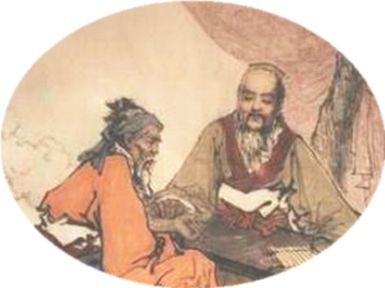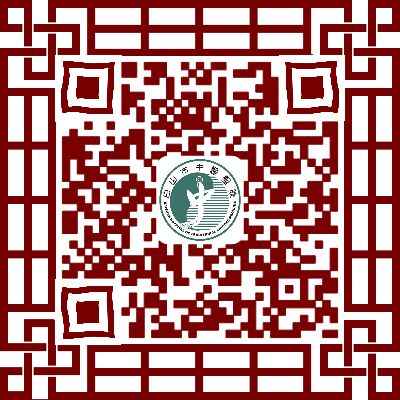
濒
湖
脉
学
李
时
珍
著
《濒湖脉学》是李时珍撷取《内经》、《脉经》等诸书精华,结合自己的经验撰著而成。总为一卷,内容分两部分,一是阐述了27种脉象的脉形特点,辨别方法及主治病证,二是引录了其父李言闻阐述脉学理论的《四言举要》。
Xu Mai (Deficient Pulse)

Large and soft, with weak pressure,
the pulse feels empty under the fingers.
【Translation】The pulse is large and soft, beating slowly and weakly, indicating a Xu Mai (Deficient Pulse). When pressed firmly, the pulse subtly moves beneath the fingers, giving a feeling of emptiness.
【Causes and Common Conditions】The Xu Mai indicates a deficiency syndrome, often due to insufficient Qi and blood or organ deficiency. When Qi is insufficient to propel the blood, the pulse is weak; when blood is insufficient to fill the pulse, it feels empty. Organ dysfunction leads to a loss of essence, blood, and fluids, commonly seen in various chronic wasting diseases, where Xu Mai is often present. High fever damaging Yin, dehydration, bleeding, or insufficient fluids after vomiting or diarrhea can further exacerbate the weak pulse. Clinically, Xu Mai may appear alongside Fu Mai (Floating Pulse), indicating Qi deficiency or unstable defensive Qi; with Se Mai (Choppy Pulse), indicating blood deficiency; with Chi Mai (Slow Pulse), indicating Yang deficiency; and with Shu Mai (Rapid Pulse), indicating Yin deficiency.

1
Poem on Pulse Characteristics
When pressed lightly, it feels large and slow; the pulse appears boundless, like an empty valley. Do not mistake Ke Mai (Wiry Pulse) for this, as Ke Mai is floating and large, resembling a green onion.
【Translation】 The Xu Mai feels large and slow with light pressure; when pressed firmly, it feels soft and boundless, seemingly empty. However, do not confuse Xu Mai with Ke Mai, which is floating and large like a green onion, while Xu Mai is floating and weak.
3
Poem on Associated Conditions
A weak pulse with body heat indicates heat injury; spontaneous sweating and palpitations are common. Fever due to Yin deficiency must be treated early; nourish the Ying and benefit Qi without delay.
Blood not nourishing the heart shows a weak pulse at the cun position; abdominal distension after eating indicates a weak pulse at the guan position. Bone steaming and weakness from Yin deficiency are seen at the two Shenmen positions.
【Translation】 In summer, if there is persistent body heat with a weak pulse, it indicates heat injury. Additionally, spontaneous sweating due to Qi deficiency, palpitations, and anxiety are often associated with a weak pulse. The presence of a weak pulse in heat conditions indicates severe Yin deficiency and weakened righteous Qi, necessitating prompt treatment to nourish Ying and benefit Qi without hesitation.
A weak pulse at the cun position indicates insufficient heart blood; at the guan position, it indicates discomfort after eating; conditions of Yin deficiency with heat, bone steaming, and weakness are reflected at the two Shenmen positions.
This article aims to share knowledge of Traditional Chinese Medicine. If there is any inappropriate use, please contact us for removal.
E-mail: [email protected]

Follow Baishan City Traditional Chinese Medicine Hospital
Find your belonging

